34 journalists killed in Southern Kurdistan
The Turkish occupation state and the Kurdistan Democratic Party (KDP) have killed 34 journalists over the past 31 years.
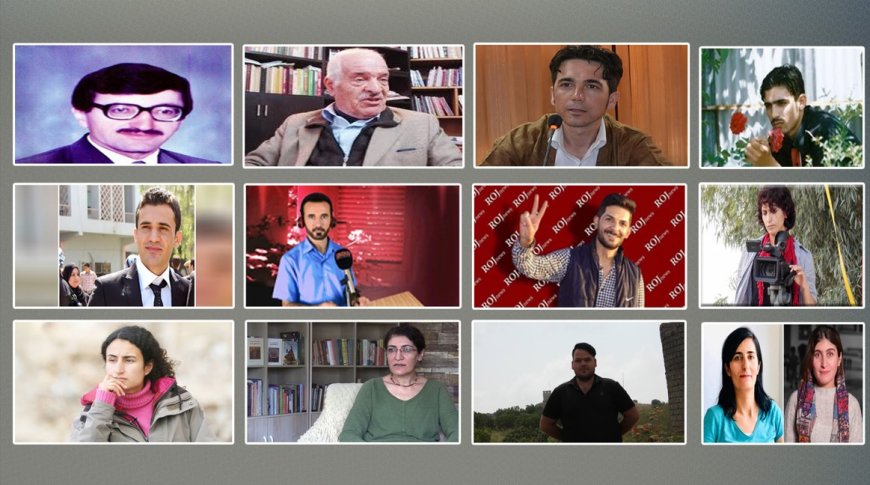
The KDP gradually took control of the government that was established in the cities of Southern Kurdistan, Duhok, Hewler and Sulaymaniyah, after the expulsion of Saddam Hussein's forces from them in 1991. The KDP's control of the government led to increasing pressure on segments of society. Those demanding their rights in Duhok and Hewler, which are under the control of the KDP, were subjected to repression and journalists seeking to convey these facts were targeted.
Journalists who expose corruption, rights violations, kidnappings and attacks by the Turkish occupation state and its agent, the Kurdistan Democratic Party, have been subjected to torture and murder since 1992.
From 1993 until the current year 2024, 34 journalists were killed in southern Kurdistan.
Raouf Kamel Aqrawi: The first journalist to be killed in Southern Kurdistan
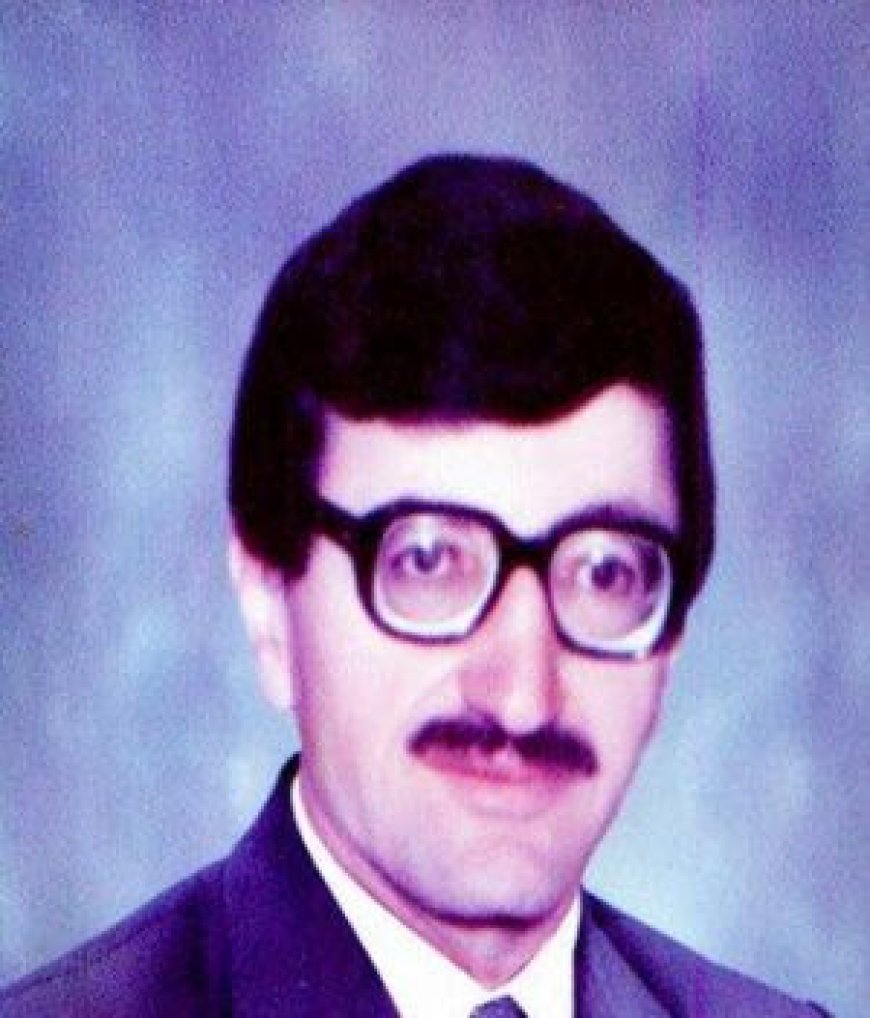
Journalist Raouf Kamel Aqrawi was born in the Aqra district of Dohuk in 1951. He ranked first in the Faculty of Economics at the University of Mosul, and second in Iraq between 1976 and 1977. A year later, he worked at the Dohuk Strategic Center, and took over as editor-in-chief of the newspaper the Road of the Toilers (Regay Rankedran) in Kurdish and Arabic.
In 1992, Aqrawi visited the Masoum Korkmaz Academy in Bekaa, and met with leader Abdullah Ocalan in order to put an end to the war between the Kurdistan Workers' Party, the Kurdistan Democratic Party, and the Patriotic Union of Kurdistan.
Raouf Kamel Aqrawi was killed in front of his home in Dohuk by gunmen on May 26, 1993. The Dohuk Asayish did not show his body to his family or even allow an investigation into the attack.
Journalist Raouf Kamil Aqrawi was the first journalist to be assassinated in Southern Kurdistan after the 1991 uprising.
20 journalists killed in the Hewler massacre
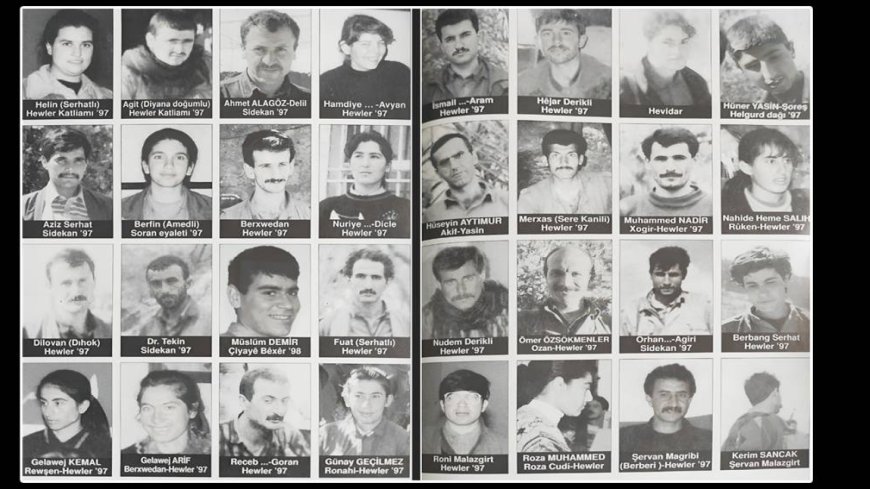
On May 16, 1997, the Kurdistan Democratic Party, in alliance with the occupying Turkish state, launched an attack on the Patriotic Democratic Union of Kurdistan (YNDK), the Mesopotamia Cultural Union, the Free Kurdistan Women's Union, a hospital where guerrilla were being treated, the Kurdish Red Crescent, and the newspapers Welat and Watan al-Shams. According to official documents, 63 politicians, intellectuals, and wounded guerrilla fighters were killed, as well as 20 journalists working for Roj, Watan al-Shams, and Med TV.
Journalists killed during the Hewler massacre: Mohammed Nader Kazniyi, born in Erbil in 1970, Azad Mohammed, born in Rawanduz in 1971, Shafana Hamlaw, born in Sulaymaniyah in 1971, Idris Ali Mohammed, born in Penjwin in 1973, Rajab Mohammed Salih, born in Kalar in 1973, Klawij Kamal Hassan, born in Sulaymaniyah in 1971, Khalid Najib, born in Sulaymaniyah in 1973, Hamid Barzinji, born in Kirkuk in 1973, Ismail Abdullah Kurda, born in Shaqlawa in 1972, Klawij Arif Mahmoud, born in Sulaymaniyah in 1975, Sheikh Kamran Hiran, born in Hiran in 1968, Bari Osman Mohammed, born in Sulaymaniyah in 1973, Nahida Hammad Salih, born in Sulaymaniyah in 1971, Konay Kajlmaz was born in Pazarçakh in 1971, Mirkhaz Serekaniye was born in Serekaniye in 1970, Rony Malazgirt was born in Malazgirt in 1978, Rosa Yusuf was born in Derik in 1969, Jovan Shekho was born in Derik in 1965, Sarkawt Khanaqini was born in Khanaqin in 1972, Bekir Dogan was born in Riha in 1968.
Abdul Sattar Taher Sharif
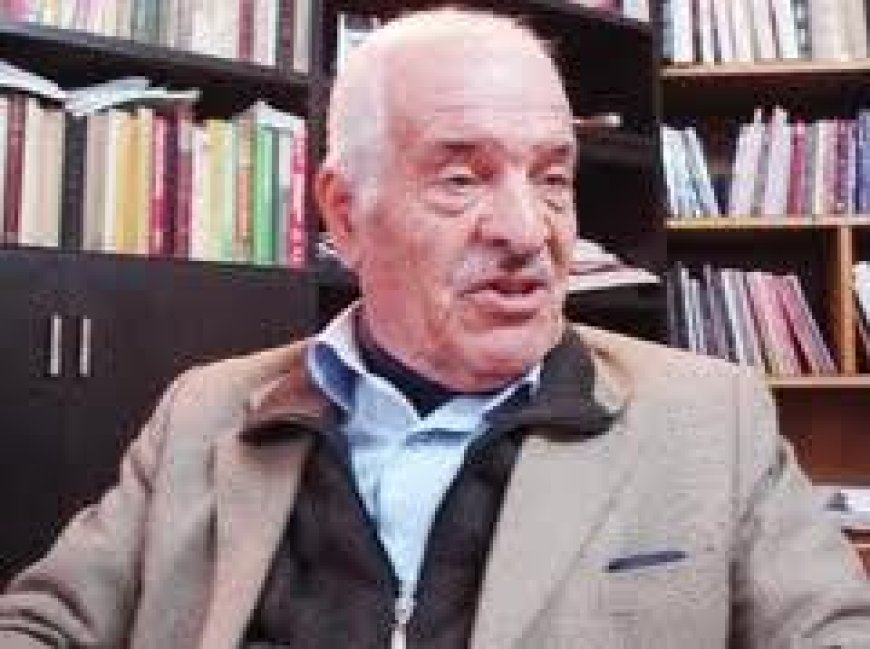
The physician, politician, journalist and writer Abdul Sattar Taher Sharif was born in Kirkuk in 1935. He wrote articles criticizing the government of Southern Kurdistan in the newspapers "Lîvîn" and "Rojname" and the "Cemawer Niyoz" agency. He was killed in the Rahim neighborhood in Kirkuk on March 3, 2008, and the Kurdistan Democratic Party covered up his death. Soran Mami Hami
Soran Mami Hami, known as Soran Mohammed Aziz, was born in the Shorej neighborhood of Kirkuk on February 2, 1986.
He worked in Kirkuk as a correspondent for the Kurdistan Report newspaper in 2006, and then became the newspaper's bureau chief. Soran Mami Hami, who was the head of the Galgi Center and a member of the Writers' Association of the Nogarsulman newspaper, was appointed as the head of the Livin newspaper's bureau in Kirkuk in 2006.
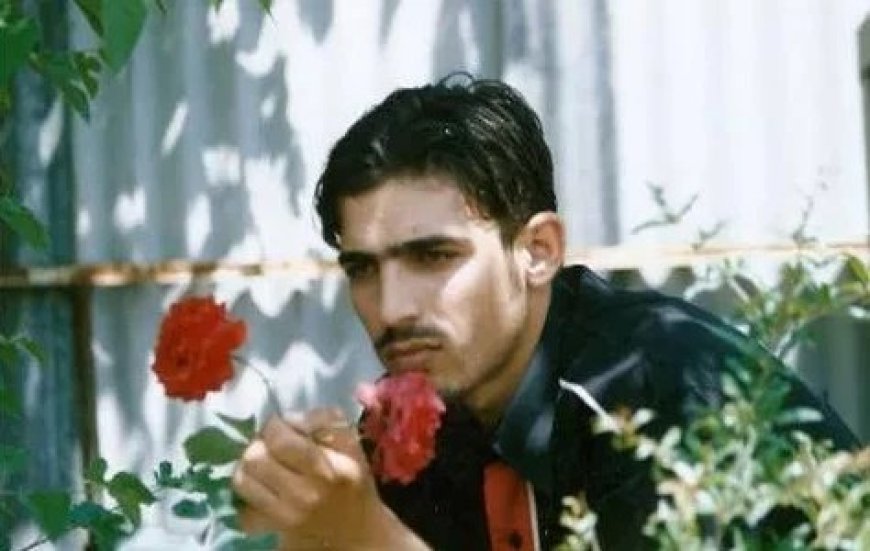
Journalist Soran Mami Hami conducted investigative journalism on the corruption of the government of Southern Kurdistan, and was arrested several times by security forces and government authorities.
Soran Mami Hami was killed in front of his home in Kirkuk on July 21, 2008, while he was studying in the Department of Visual Arts at the College of Fine Arts in Kirkuk.
Sardasht Osman
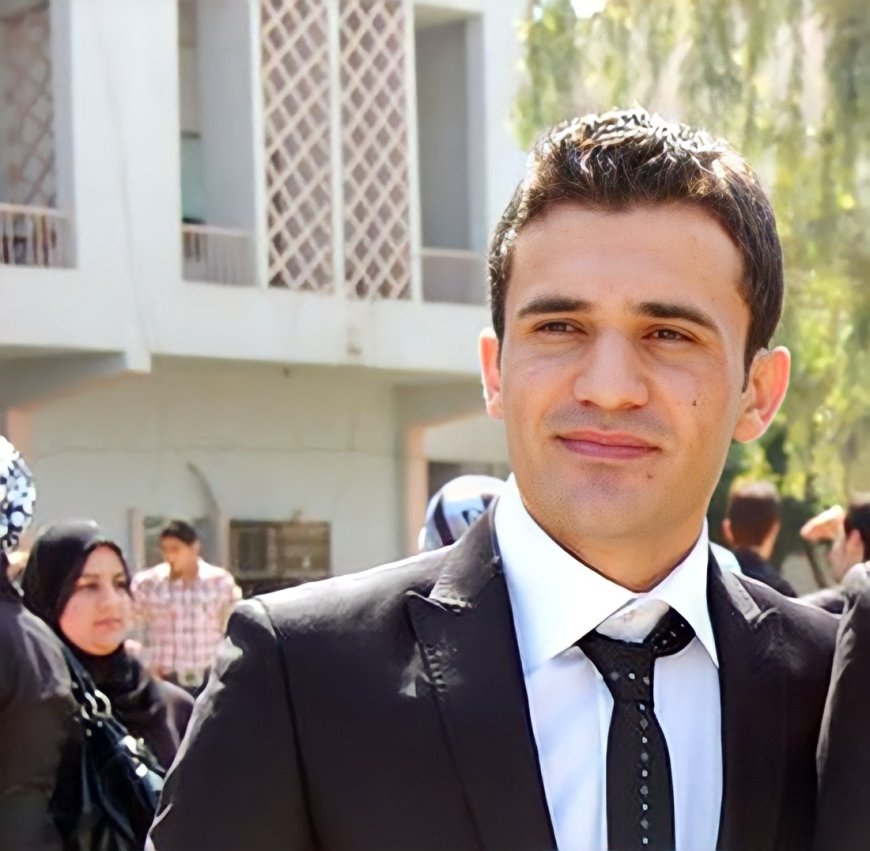
Born in Hewler on December 25, 1987, Sardasht Osman studied English at Salahaddin University and began working in the media field in 2004. He published news and articles criticizing Iraq and southern Kurdistan in newspapers and magazines; Kurdistan Press, Kurdistan Net, Levin Press, Hawlati, Awin and Ashtiname.
On May 3, 2010, the body of journalist Sardasht Osman, who was kidnapped in Hewler by unknown persons, was found dumped on the Mazari' Road near Damiz Street in Mosul, with signs of brutal torture.
Widad Hussein

Wedad Hussein Ali was born in the village of al-Kanaan in the district of Ghafr in Gulmerg on January 17, 1988. He was forced to move to the city of Dohuk with his family due to Turkish pressure.
Rojnews correspondent Widad Hussein was kidnapped in the Malta neighborhood in Dohuk on August 13, 2016. He was thrown on the road between Dohuk and Simal half an hour after his kidnapping, with severe injuries and signs of violent torture on his body, as a result of which he was martyred.
The Kurdistan Democratic Party lost the records of more than 100 surveillance cameras that had monitored Widad Hussein until the place of his injury.
Deniz Furat
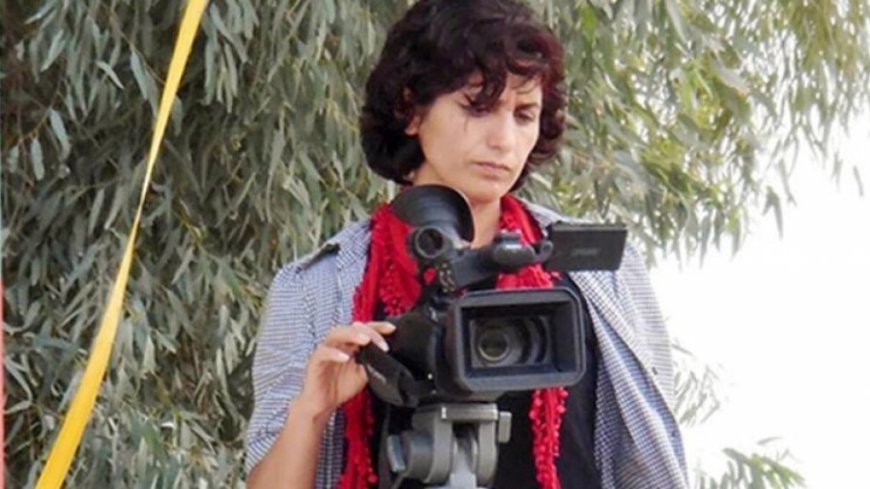
Deniz Furat (Leyla Yıldıztan) was born in Çaldiran district of Van in 1984. Deniz Furat was exiled with her family to Eastern Kurdistan and then South Kurdistan due to the attacks of the occupying Turkish state, and settled with her family in the Zile camp.
Deniz Furat has been struggling for Kurdish women and the Kurdish people for many years, and she got involved in women's media work in 2007, and worked for the magazine Goddess Zilan, Radio Voice of the Homeland (Dengê Welat) and many agencies and satellite stations.
Journalist Deniz Furat was martyred on August 8, 2014, while covering the attacks launched by ISIS on Makhmur on August 6, 2014.
Aker Baneh
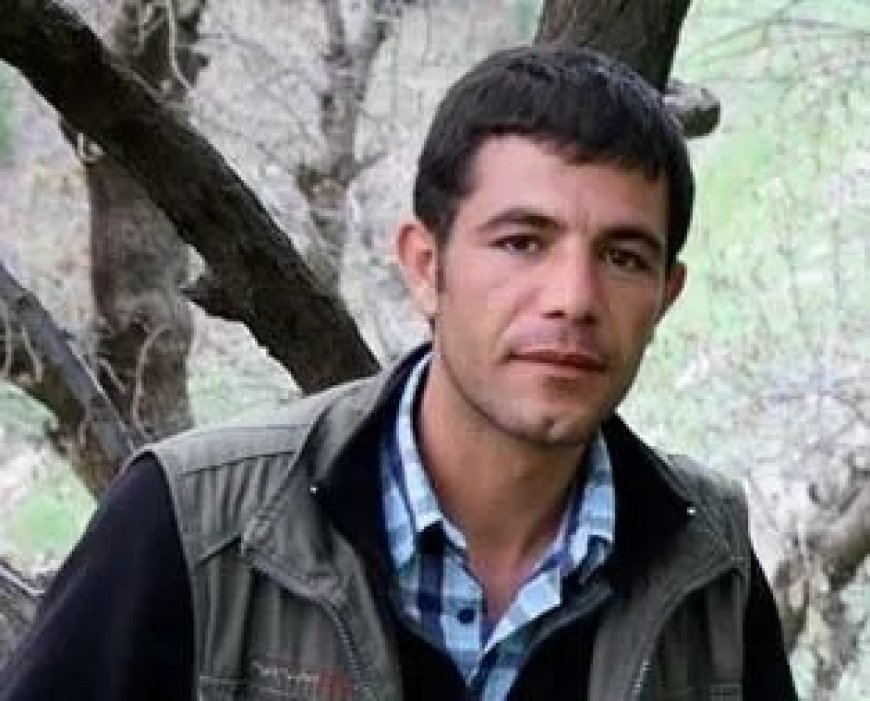
Journalist Aker Baneh (Amanj Rasouli) was born in the city of Baneh in Eastern Kurdistan in 1988. He started working in the media field while he was still young and worked in Shengal and the Mediya Defense Zones. He was martyred on March 11, 2016 while covering the “Valley of Shilo Revenge” operation launched against ISIS mercenaries supported by the Turkish state.
Kawa Garmiani
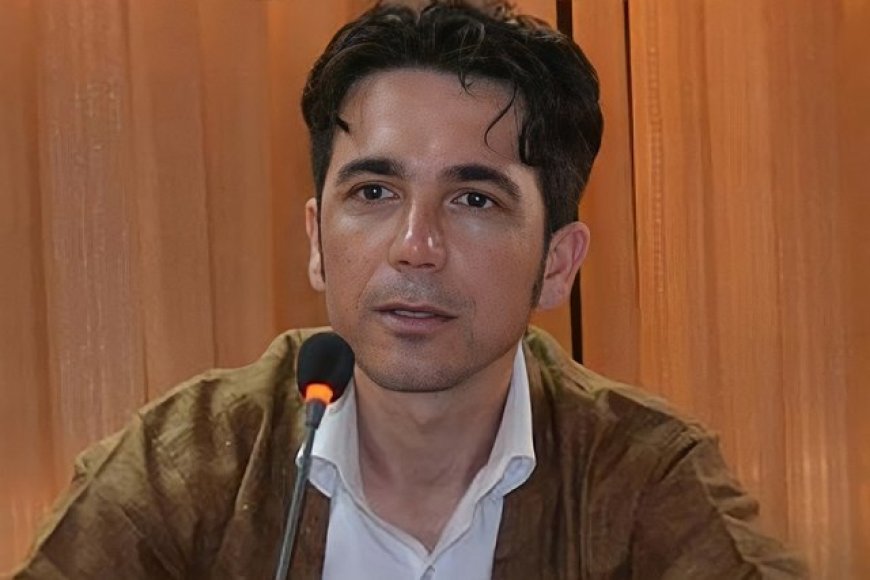
Journalist Kawa Ahmed Mohammed, nicknamed Kawa Garmiani, was born in the city of Rasht in Eastern Kurdistan in 1979. He started working in the media field in 2002 as a photographer.
He conducted investigative journalism on the corruption of the government and published a book called "Garmiani with Black Documents" in 2011.
On December 5, 2013, the editor and owner of Rayel magazine and journalist for Awin newspaper, Kawa Garmiani, was shot in front of his home in Kalar and lost his life.
Shukri Zain al-Din
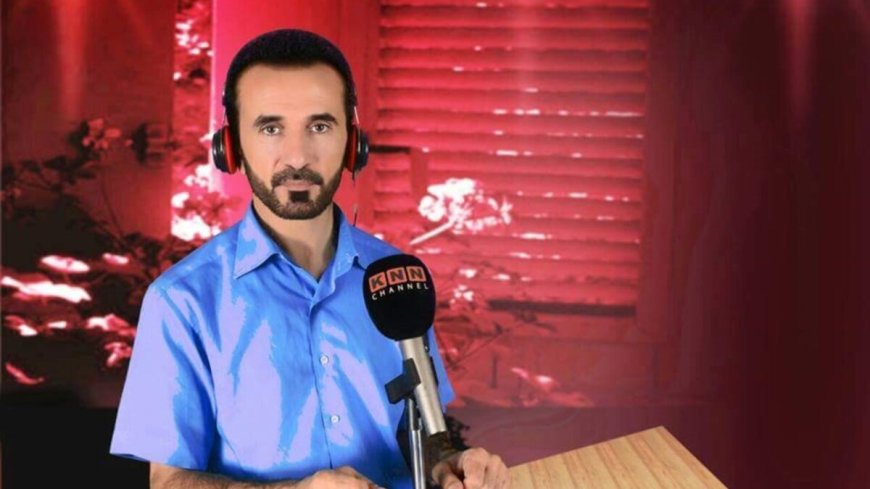
KNN TV correspondent Shukri Zain al-Din was kidnapped from the village of Banisra, Shiladz town, Amadiya district, Duhok, on December 1, 2016. His body was found in a village near Amadiya district 4 days after his kidnapping.
The armed forces of the Kurdistan Democratic Party stormed the house of journalist Qahraman Rikani, Shukri Zain al-Din's son, on January 27, 2021, and arrested Rikani and took him to an unknown location. The judge of the judiciary in Southern Kurdistan tried journalist Qahraman Rikani on June 24, 2021, without lawyers, and sentenced him to 7 years in prison.
Nojian Erhan
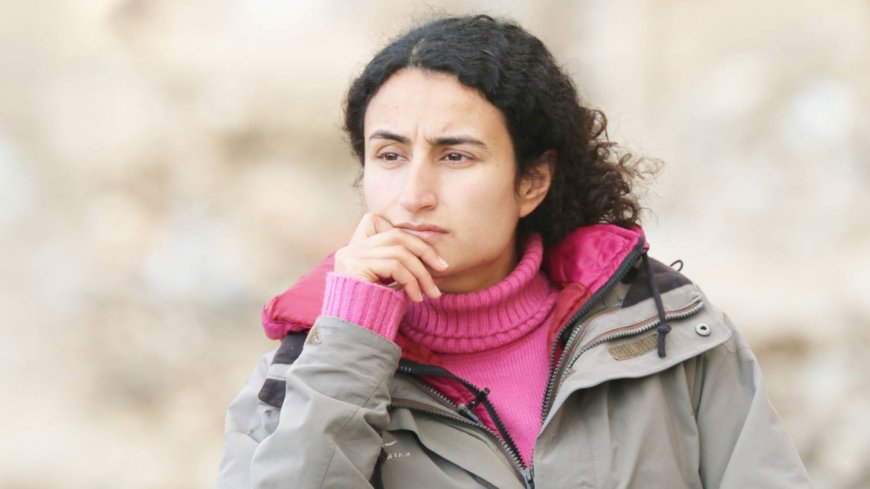
Journalist Nojian Erhan (Tuba Akyılmaz) was born in Halvan district of Urfa on January 1, 1987. She started working in the media field to convey the injustice that her people are subjected to to the world. She worked as a journalist in Southern Kurdistan, Qandil and Shengal.
Journalist Nojian Erhan was targeted by the KDP forces in Khanasor town in Shengal on March 3, 2017 while covering the situation there. She was shot in the head and died as a result in al-Hasakah Hospital on the 22nd of the same month.
Nakhan Akarsal

Writer, member of the Jineoloji Research Center and journalist Nakhan Akarsal was born in the Jihanbeyli district of Konya in 1977. After graduating from the Faculty of Journalism at Gazi University, she joined the Women's Studies Department of the Institute of Social Sciences at Ankara University and studied there for a year.
She worked as an editor and reporter at Dijla News Agency from 2008 to 2014. She wrote for Ozgur Gundem, Gunluk and Yeni Ozgur Polîtîka newspapers and co-founded Ozgur Kadin magazine. She was a member of the publishing board of Jineoloji magazine. Before her martyrdom, she worked on establishing a Kurdish women's library in Sulaymaniyah as a project of a science, research and archive center.
Nakhan Akarsal was assassinated on October 4, 2022, when she was subjected to an armed attack carried out by Turkish intelligence services near her home in the Bakhtiari neighborhood of Sulaymaniyah.
Murad Mirza
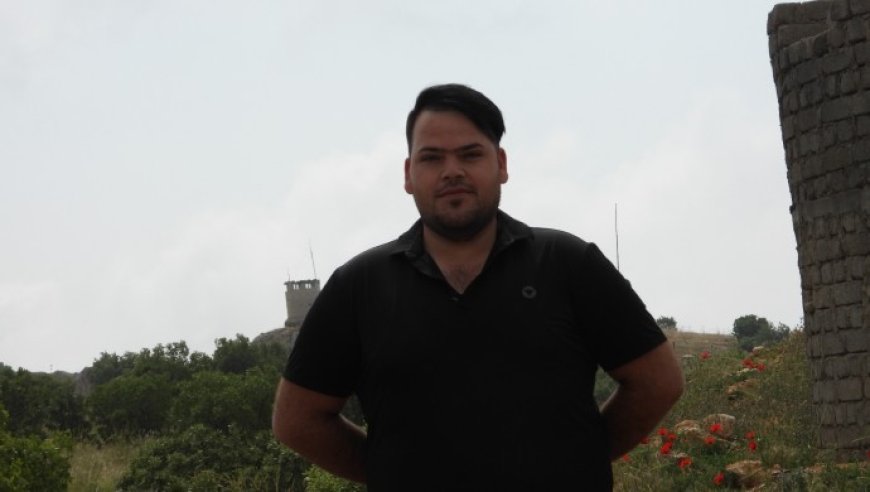
Journalist Murad Mirza was born in Shengal in 1997. He started working at Radio Çira FM last spring (2024) to convey the voice of the people of Shengal to the world. He is married and has 3 children.
On July 8, 2024, the Turkish occupation state targeted a car carrying journalists from Çira TV and Çira FM with a drone while they were covering the anniversary of the decree of August 3, 2014. Three journalists and four bystanders were injured, and Murad Mirza, who was also injured during the attack on July 11, 2024, was martyred.
Gulistan Tara and Hiro Baha al-Din
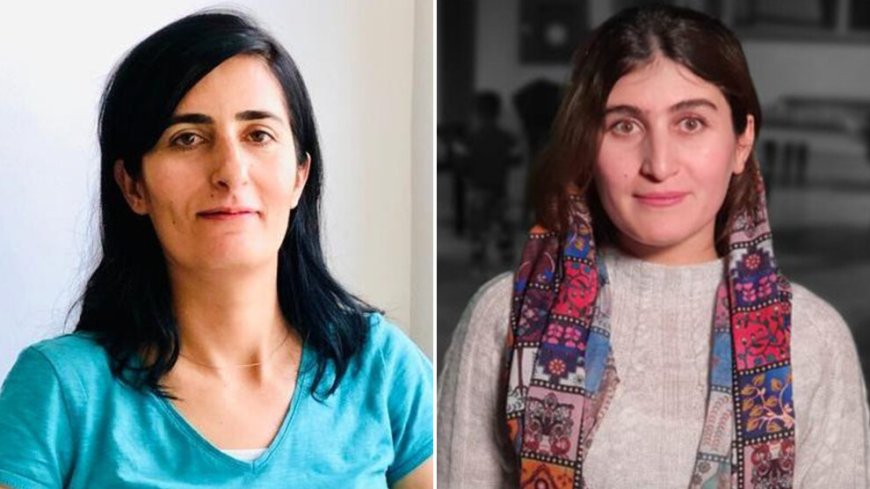
Journalist GulistanTara was born in Ayla, Northern Kurdistan, on January 24, 1983. She worked in many areas as a journalist in the field of free Kurdish media. She continued her journalistic work in North and East Syria during the revolution, and then continued her work in Southern Kurdistan (since 2018). Gulistan Tara sought to expose the government's corruption, attacks, and plots against women and the Kurdish people in Southern Kurdistan in general.
Hiro Baha al-Din is a journalist from Southern Kurdistan, known for her courageous stance and as a beacon of truth against the Turkish occupation state and its treasonous approach. With this steadfast stance, she became an example for all female journalists.
The Turkish occupation state bombed the car of the two female journalists working in the field of free media; Hiro Baha al-Din, Gulistan Tara, in the Sayyid Sadiq district of Sulaymaniyah on August 23, 2024. The attack resulted in the martyrdom of the two journalists Gulistan and Hiro and the injury of a number of male and female journalists.
249 violations of journalists' rights in 2023
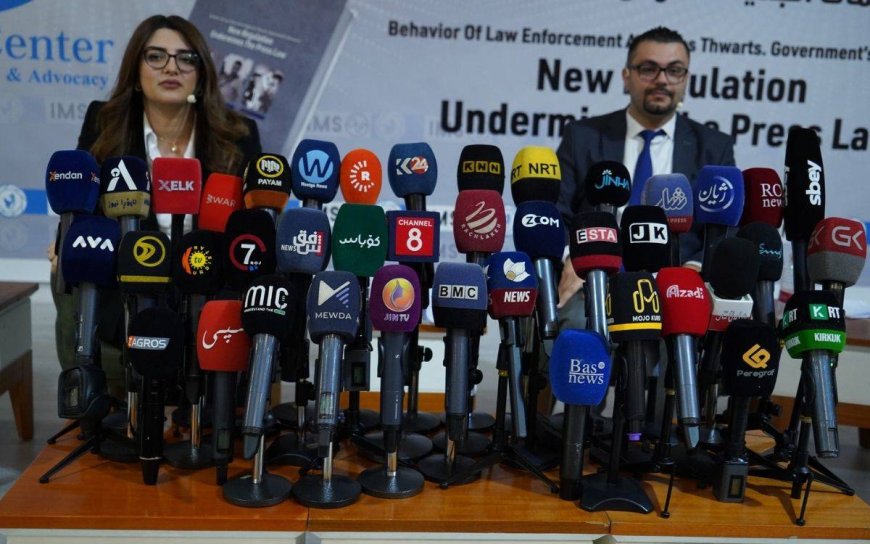
The number of crimes committed by the Kurdistan Regional Government against journalists is increasing day by day. According to the Metro Center for the Protection of Journalists' Rights report, which is active in Southern Kurdistan for the year 2023, 257 journalists faced 249 violations of their rights. They were prevented from doing their work 134 times, their equipment was confiscated 38 times, they were threatened and assaulted 27 times, and 5 cases of journalists being arrested were recorded.
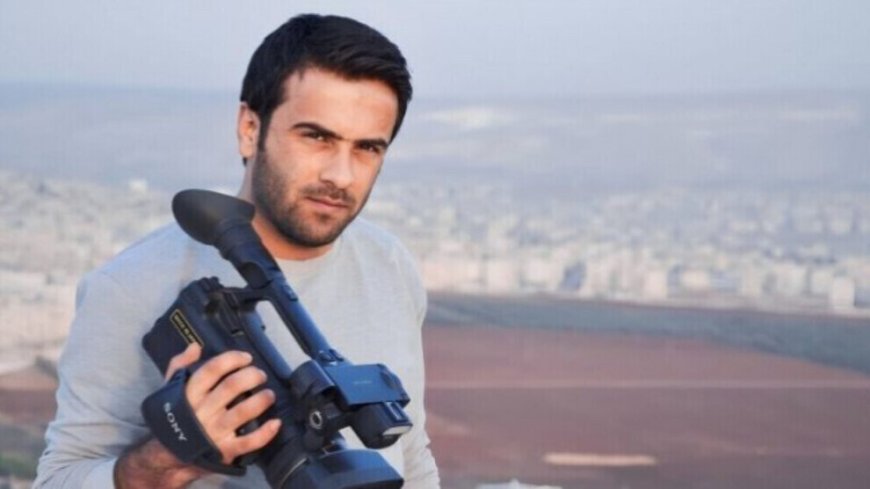
Dozens of journalists are illegally held in the prisons of the Kurdistan Democratic Party, including the editor of the Arabic section of Roj News Agency, Suleiman Ahmed, who was arrested by the Kurdistan Democratic Party forces while returning from Rojava to Southern Kurdistan on September 25, 2023, and has been illegally detained for 308 days.
T/ Satt.
ANHA













